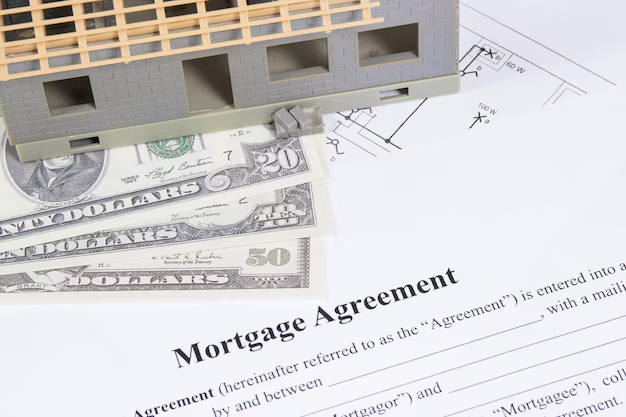Exploring States Without Property Tax: Myth or Reality?
Are you dreaming of a life without the financial burden of property taxes? It’s a concept that intrigues many homeowners and potential property buyers, given how property taxes can significantly impact affordability and long-term financial planning. Interestingly, the idea of states without property taxes isn't entirely a myth, but it requires some nuanced understanding. Let’s dive into this subject to clarify misconceptions, offer insights, and explore practical considerations surrounding property taxes in the United States.
Unpacking the Myth: Do States Without Property Tax Exist?
Contrary to popular belief, no state is completely devoid of property taxes. Property tax is a crucial revenue source for local governments, funding essential services such as education, emergency services, and infrastructure maintenance. While some states offer lower property tax rates, the complete absence of property tax is not a reality.
States with Low Property Tax Rates
Several states are known for lower-than-average property tax rates, making them attractive to those looking for reduced tax burdens. However, these states still levy some form of property tax:
- Hawaii: Known for the lowest average property tax rates in the country, but high property values might offset these low rates.
- Alabama: Features low property tax rates in a state with affordable property values.
- Colorado: Offers low rates, coupled with a booming real estate market that can affect property assessments.
Why Property Tax Matters
Understanding the role of property taxes helps in grasping why they exist in all states. They are crucial for:
- Education: A significant portion funds public schools.
- Emergency Services: Including police, fire, and medical services.
- Infrastructure: Road maintenance, public buildings, and other civic amenities.
Delving into Property Tax Alternatives
Some people mistakenly believe a lack of state income or sales tax equates to no property tax. These are distinctly different revenue streams. States without income tax include:
- Texas
- Florida
- Washington
However, these states still implement property taxes, often using them to compensate for the absence of income tax.
Balancing Act: High Property Tax with Low Taxes Elsewhere
States with high property tax rates often do so as a balance to lower or non-existent other taxes:
- New Hampshire: Doesn’t levy a standard income or sales tax, relying heavily on property tax.
- Texas: Known for no income tax, but the property tax is notably high.
This balancing act reflects states’ varied approaches to managing and generating income, ensuring they can maintain essential public services.
Understanding Special Property Tax Exemptions
While each state imposes property taxes, certain exemptions can help reduce the financial load for qualifying homeowners. These do not erase property tax but can substantially mitigate it.
Homestead Exemptions
Many states offer homestead exemptions that reduce taxable property value for primary residences:
- Florida: Provides significant homestead exemptions and portable Save Our Homes Cap benefits.
- Texas: Offers generous exemptions for primary residences.
Senior and Veteran Exemptions
- Senior Citizens: Many states extend additional property tax benefits or exemptions to seniors.
- Veterans: States often provide specific exemptions or reductions for disabled veterans.
These exemptions differ by state and are subject to legislative changes, but they create meaningful tax-relief possibilities for eligible residents.
Strategies for Managing and Reducing Property Tax Burden
For homeowners or prospective buyers looking to reduce property tax burdens, or manage them effectively, understanding the factors that influence property tax assessments is crucial.
Improving Understanding of Assessments
Assessments are based on property values, which are influenced by:
- Market Conditions: Neighborhood value changes can dramatically impact property taxes.
- Home Improvements: Renovations or additions can increase assessed values.
Appealing Property Tax Assessments
Homeowners can often appeal their property tax assessments if they believe their property has been inaccurately valued. Consider these steps:
- Review Your Assessment: Ensure all details are accurate, and understand the basis of your assessment.
- Research Comparable Properties: Look at similar home assessments in your area.
- File an Appeal: If discrepancies exist, follow your locality’s process to file an appeal.
Practical Tips for Property Tax Relief
Here are practical steps homeowners can consider to manage property taxes effectively:
- Stay Informed: Keep abreast of changes in property tax laws and exemptions.
- Consider Location: When buying new property, investigate property tax rates and trends in that area.
- Financial Planning: Factor property taxes into long-term financial planning to avoid unexpected burdens.
📝 Key Takeaways and Considerations
To summarize comprehensively:
- No State Is Tax-Free: Expect property taxes in all states, albeit at varied rates.
- Low vs. High Rates: Compare property tax rates to understand state revenue strategies.
- Exemptions Matter: Leverage available exemptions for potential tax reductions.
- Stay Proactive: Review assessments, and know how to appeal if necessary.
What to Remember When Moving
Before considering a move:
- 💡 Research State and local property taxes.
- 🚚 Evaluate the overall tax environment, including sales and income taxes, to judge total financial impact.
- 📑 Check for applicable exemptions to lower tax burdens.
Making a well-informed decision about property taxes when moving or purchasing property can lead to better financial outcomes and peace of mind.
In conclusion, while the myth of states without property taxes is enticing, it's vital to ground expectations in the costs of living still governed by these essential levies. From understanding exemptions to actively managing assessments, homeowners’ ability to navigate property taxes effectively remains crucial to their financial health.

Related Topics
- Are Property Taxes Tax Deductible
- Can I Get a Property Tax Refund
- Can I Pay Property Tax Online
- Can I Pay Property Tax With Credit Card
- Can Property Tax And Condo Fee Be Deducted In Maryland
- Can You Claim Property Taxes On Your Income Tax
- Can You Claim Property Taxes On Your Tax Return
- Can You Claim Your Property Taxes On Your Income Tax
- Can You Pay Property Tax Monthly
- Can You Totally Not Pay Property Tax Texas
